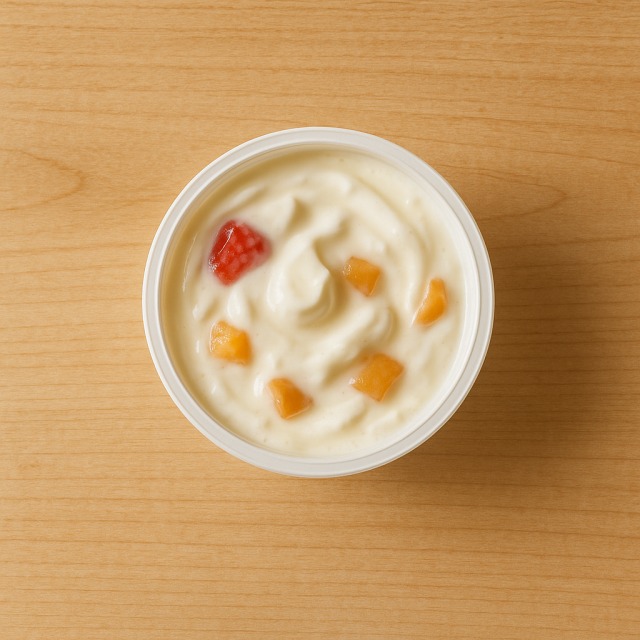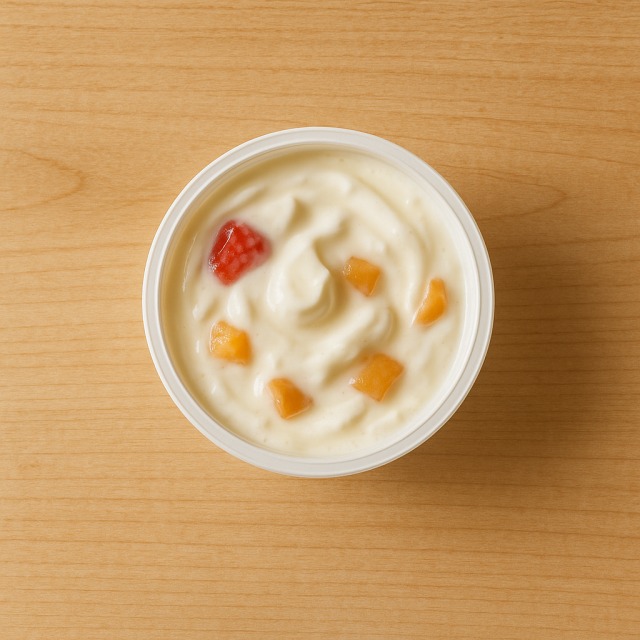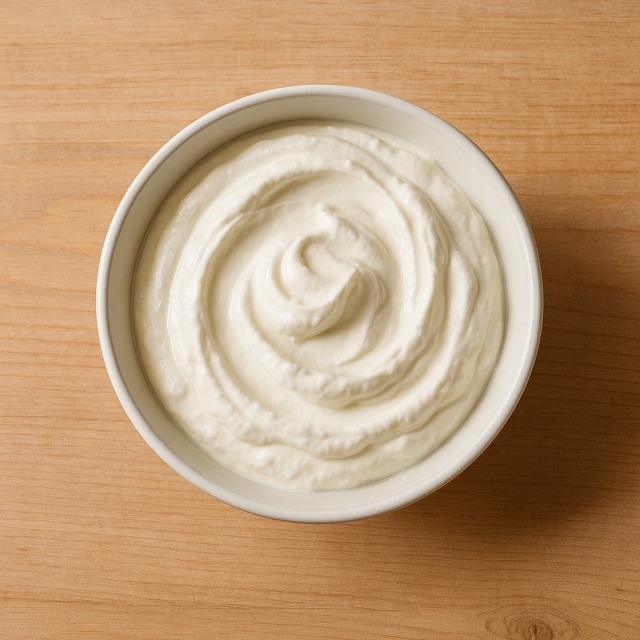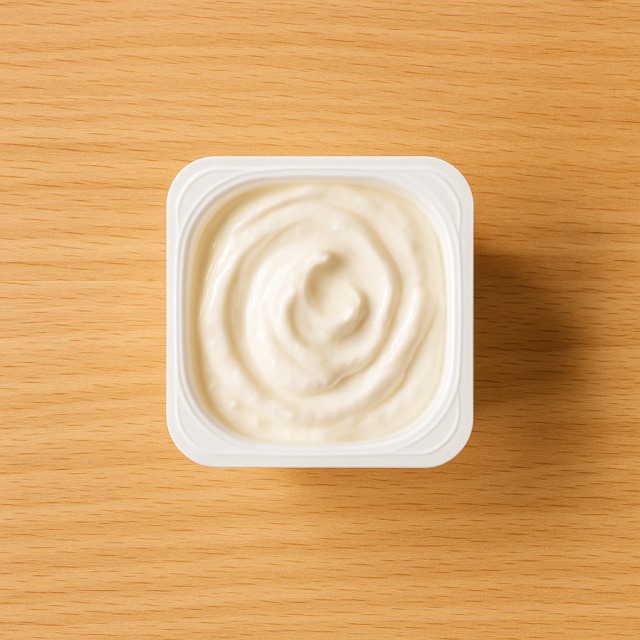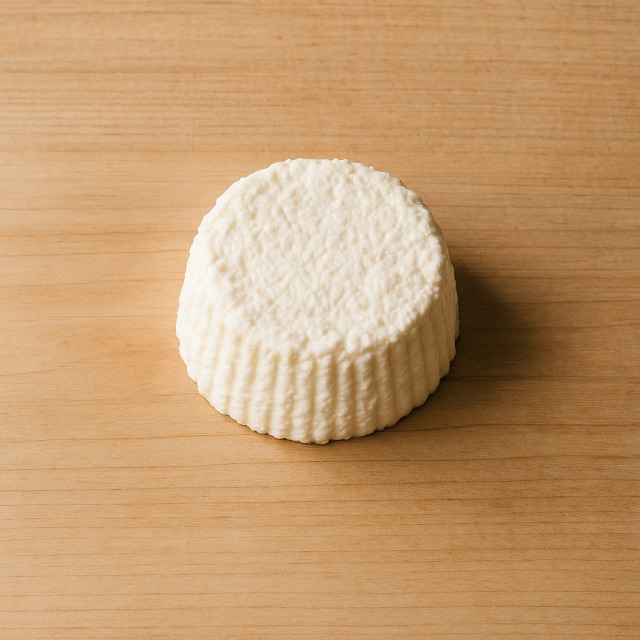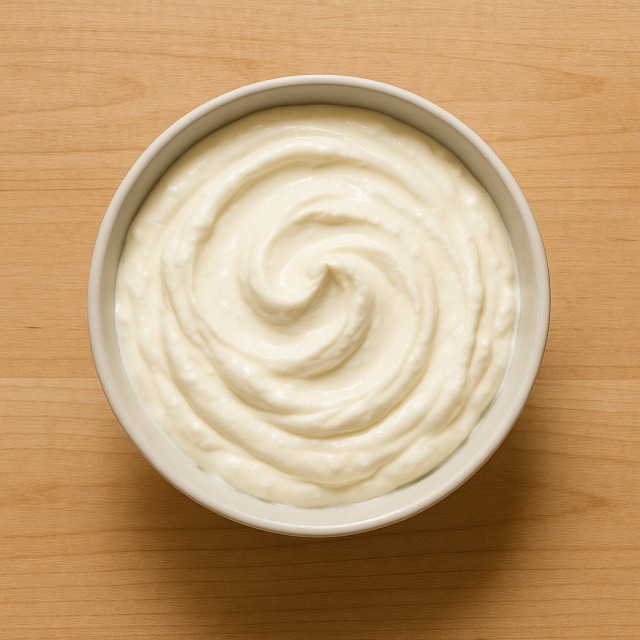Calorie Chart / Desserts / Fromage blanc 0%
How Many Calories Are in Fromage blanc 0%?
Calculation of the nutritional value & Recommended Dietary Intake of fromage blanc 0%
For g and a calorie requirement of kcal
| Calories 58 kcal | Proteins 9.4 g | Lipids 0 g | Carbohydrates 4.9 g |
| 3% | 13% | 0% | 2% |
Health benefits of fromage blanc 0%
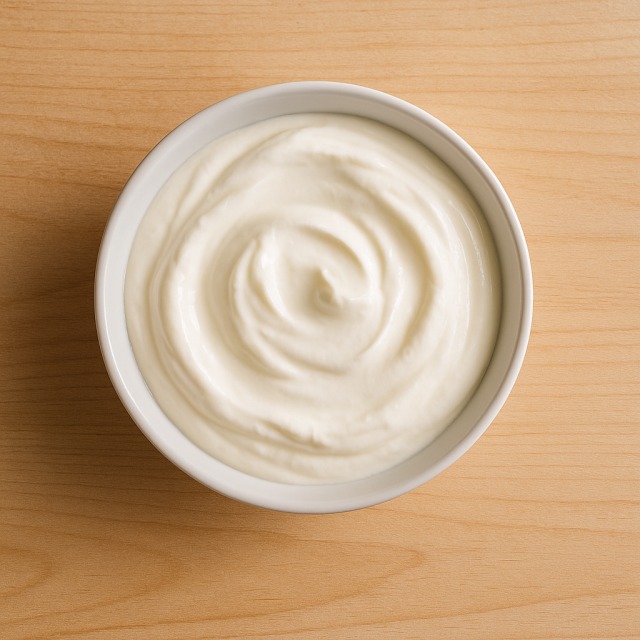
Fromage blanc 0% - 100g
Calories 46 kcal
Proteins 7.5 g
Lipids 0 g
Carbohydrates 3.9 g
Fromage blanc 0% is widely recognized as a low-calorie dairy option: at only 46 calories per 100 g, it allows you to increase protein intake without adding many calories to the daily total. Because it is virtually fat-free, people watching their calories can enjoy a creamy texture while keeping overall calories under control.
Despite its light calorie count, this fresh cheese supplies around 7.5 g of high-quality proteins per 100 g, which contributes to muscle maintenance and satiety. It is also a notable source of calcium, essential for bone health, and provides useful amounts of vitamin B2 (riboflavin) and vitamin B12. The combination of proteins and micronutrients makes it a smart choice when you need nutrients but very few calories.
The fermentation process brings naturally occurring lactic bacteria that may support gut microbiota balance (a supposed benefit still under scientific review). Historically, fromage blanc has been produced in the French regions of Normandy and Brittany since the 18th century, prized by farmers for its delicate taste and, more recently, by dieters for its remarkably low-calorie profile.
Because it delivers creaminess for minimal calories, fromage blanc 0% is frequently recommended in sports nutrition programs, weight-loss plans, and recovery diets where every gram of calories matters.
Tips for incorporating fromage blanc 0% into a balanced diet
Thanks to its mild flavor and extremely low calories, fromage blanc 0% adapts to countless sweet or savory recipes. For a protein-rich breakfast under tight calorie control, top a bowl with oat flakes, fresh strawberries, and a drizzle of honey; the mix stays satisfying while keeping calories reasonable.
If you prefer something savory, transform it into a light tzatziki by combining shredded cucumber, mint, and lemon juice; serve it next to grilled chicken breast to add freshness without piling on calories. Each spoonful replaces richer sauces and helps cut the overall calories of the meal.
In sports smoothies, blend fromage blanc 0% with a ripe banana and a handful of blueberries. The fruit adds natural sweetness so you avoid extra sugar calories, while the dairy supplies recovery proteins for minimal additional calories.
Finally, use it as a substitute for cream in baked goods such as a light quiche Lorraine or a fruity crumble. You will preserve moisture, slash the recipe's calories, and boost proteins, demonstrating how effortlessly fromage blanc 0% integrates into a balanced, calorie-conscious diet.
Frequently Asked Questions
- How many calories are in fromage blanc 0%?
- There are 46 kcal per 100 g.
- Is fromage blanc 0% good for weight-loss diets?
- Yes. Its very low calorie count and zero fat make it easy to reduce daily calories while still obtaining satiating proteins.
- How does its calorie content compare with that of yogurt?
- Plain yogurt averages 60–65 calories per 100 g, slightly higher than the 46 calories in fromage blanc 0%, so fromage blanc remains the lower-calorie choice.
- Does heating fromage blanc 0% change its calories?
- Cooking does not create or destroy calories; however, added ingredients like oil or sugar will raise overall calories.
- Can athletes use fromage blanc 0% after training?
- Certainly. The 7.5 g of proteins help muscle recovery for barely 46 calories, ideal when you need nutrients without excessive calories.
- What is the best time of day to eat it to manage calories?
- Enjoy it at breakfast, as a snack, or as a dessert: spreading intake over the day prevents hunger spikes while controlling total calories.
Similar foods
Information provided by Calorie Menu may contain inaccuracies or errors. It cannot, under any circumstances, substitute medical advice or medication.
